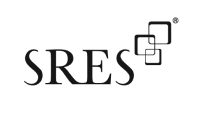South Shore April 2025
Lunenburg County Single-Family Market Analysis
April 2025
Stats from the Nova Scotia Association of REALTORS® (NSAR)
| Key Metrics | April 2024 | April 2025 | % Change |
|---|---|---|---|
| New Listings | 109 | 109 | 0.0% |
| Pending Sales | 65 | 69 | +6.2% |
| Closed Sales | 54 | 71 | +31.5% |
| Days on Market Until Sale | 34 | 55 | +61.8% |
| Median Sales Price | $420,000 | $410,000 | -2.4% |
| Average Sales Price | $457,114 | $497,603 | +8.9% |
| Percent of List Price Received | 97.8% | 96.1% | -1.7% |
| Inventory of Homes for Sale | 201 | 228 | +13.4% |
| Months Supply of Inventory | 4.5 | 4.3 | -4.4% |
Market Overview
Lunenburg County's April 2025 single-family market presents a study in contradictions—robust transaction volumes coexisting with sharply extended marketing timelines and weakening seller negotiating power. While closed sales surged 31.5%, the dramatic deterioration in days on market (+61.8%) and declining list price realization signal fundamental shifts in market dynamics despite headline transaction strength.
Critical Market Signal
The 61.8% increase in days on market from 34 to 55 days represents the most significant absorption deterioration in the dataset and demands careful analysis. This metric, combined with weakening list price realization, indicates transaction friction intensifying despite strong closed sales volumes.
Supply Dynamics: Stagnant New Listing Flow
New listing activity remained perfectly flat year-over-year at 109 properties (0.0% change), a notable contrast to March's 34.8% surge. This supply constraint suggests either:
- Sellers holding inventory off-market pending improved conditions
- Natural market saturation after March's supply release
- Seasonal normalization following March's acceleration
Active inventory expanded 13.4% to 228 homes despite flat new listings, indicating properties remain on market longer as absorption capacity weakens relative to available supply.
Transaction Activity: Volume Strength Masks Velocity Concerns
Transaction metrics present divergent signals:
- Closed sales increased 31.5% to 71 transactions
- Pending sales rose modestly 6.2% to 69 properties
The 31.5% surge in closed sales likely reflects clearing of March's 68 pending transactions rather than current demand strength. The far more modest 6.2% increase in new pending sales suggests forward momentum has moderated substantially from March's exceptional 100% acceleration.
This dynamic—strong closings from prior pipeline combined with weakening new contract formation—typically precedes transaction volume deceleration in subsequent months.
Absorption Crisis: Days on Market Deterioration
Days on market surged 61.8% to 55 days, reversing March's 26.4% improvement and signaling significant market friction. Properties now require nearly eight weeks to sell—a dramatic extension from April 2024's 34-day timeline.
This deterioration is particularly concerning given:
- April typically represents peak spring selling season with optimal absorption
- The 55-day timeline exceeds March's 64 days by less than expected given seasonal patterns
- Inventory expanded only 13.4% while DOM increased 61.8%—indicating demand weakness rather than supply overwhelm
Months of supply declined marginally to 4.3 months (-4.4%), approaching the 4-6 month balanced market threshold. However, this improvement reflects strong closed sales clearing prior pipeline rather than improving absorption of current inventory.
Pricing Dynamics: Segmentation Intensifies
Price metrics reveal acute market segmentation:
- Median sales price: $410,000 (-2.4%)
- Average sales price: $497,603 (+8.9%)
The dramatic divergence—median declining 2.4% while average rises 8.9%—indicates transaction composition shifted heavily toward premium properties. This pattern typically reflects:
- Luxury inventory moving through the pipeline (possibly at discounts driving extended DOM)
- Entry-level and mid-market segments experiencing softening demand and pricing pressure
- Bifurcated market with strength concentrated in limited price segments
Sellers achieved 96.1% of list price, down from 97.8% a year prior—a 1.7% erosion representing approximately $8,000 in reduced proceeds on median-priced homes. Combined with 55-day marketing timelines, this indicates substantial shifts in negotiating leverage toward buyers.
Month-Over-Month Analysis: Momentum Reversal
April's performance contrasts sharply with March's strength:
- New listings: 89 (Mar) → 109 (Apr), +22.5% sequential increase
- Pending sales: 68 (Mar) → 69 (Apr), +1.5% sequential stagnation
- Days on market: 64 (Mar) → 55 (Apr), appears improved but contextually concerning
The near-flat pending sales growth despite 22.5% listing increase suggests demand failed to keep pace with expanding supply—the fundamental definition of softening absorption. The apparently improved DOM (64 to 55 days) likely reflects luxury transaction composition rather than true velocity improvement across the market.
Strategic Implications
For Sellers: April's data demands significant strategic recalibration. The 55-day marketing timeline and 96.1% list price realization indicate competitive pressure has intensified materially. Properties must be priced aggressively from listing inception—the 61.8% DOM deterioration shows "testing the market" strategies fail in current conditions. Sellers should expect 6-8 weeks to closing and negotiate from a position recognizing buyers hold increased leverage. Premium properties above $500,000 may find receptive demand, but entry and mid-market segments face meaningful pricing resistance around the $410,000 median.
For Buyers: Market conditions have shifted decisively in favor of buyer negotiating leverage. The combination of 13.4% inventory expansion, 55-day marketing timelines, and 96.1% list price realization creates opportunities for measured decision-making and favorable terms. Sellers facing extended DOM are increasingly motivated to negotiate—particularly in the sub-$450,000 segment showing pricing pressure. The 4.3 months of supply approaching balanced-market territory provides selection without urgency.
Market Outlook: April's divergence between strong closed sales (clearing prior pipeline) and weak new pending formation (6.2% growth) suggests May will experience transaction volume deceleration. The 61.8% DOM deterioration represents the most significant warning signal in the dataset and typically precedes 2-3 months of continued softening before potential stabilization. Absent demand catalysts, continued drift toward buyer-favorable conditions appears likely through mid-summer.
Comparative Context: Divergence from April 2024
April 2024 exhibited entirely different market characteristics:
- 34-day DOM indicating rapid absorption and urgency-driven buying
- 97.8% list price realization showing strong seller negotiating power
- 4.5 months supply suggesting balanced but seller-favorable conditions
April 2025's 55-day DOM, 96.1% realization, and 4.3 months supply represent material deterioration in seller positioning—indicating the market has transitioned from balanced-to-seller-favorable toward balanced-to-buyer-favorable dynamics.
Critical Risk Assessment
The most concerning aspect of April's data is the accelerating rate of deterioration in absorption metrics. Days on market increasing 61.8% in peak spring selling season is exceptional and suggests fundamental demand-supply imbalance rather than seasonal variation. Markets exhibiting this pattern typically experience:
- Continued DOM extension as sellers adjust to new reality (3-4 month process)
- Gradual price softening as accumulated inventory creates competitive pressure
- Transaction volume decline as pending sales formation weakens
The 6.2% pending sales growth—well below historical April performance—validates concerns about forward momentum deterioration.
.jpg)











